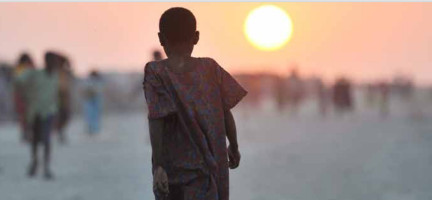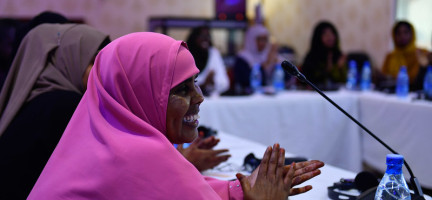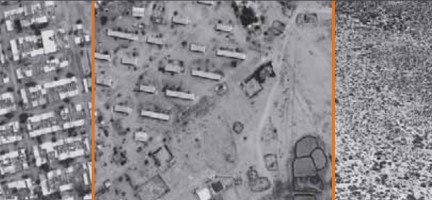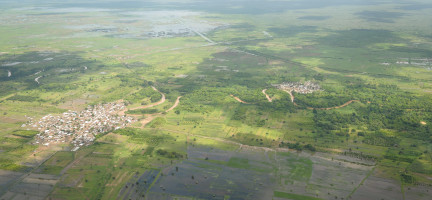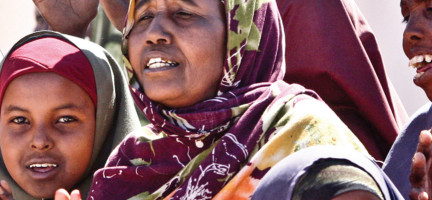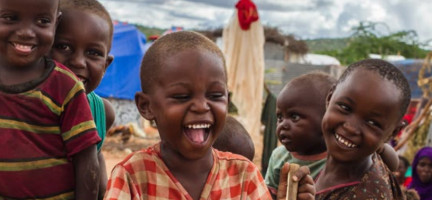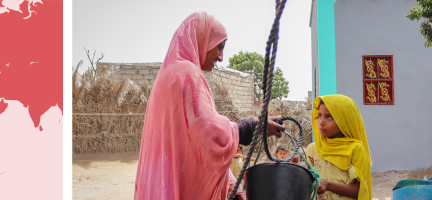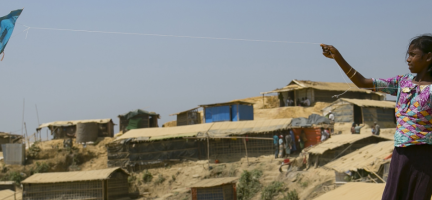Somalia
The Federal Republic of Somalia is situated in the Horn of Africa bordered by Ethiopia, Djibouti and Kenya. It has experienced decades of insecurity; economic and political instability and currently stands at a critical juncture for peacebuilding and development. The prolonged conflict leaves the country with new and re-emerging institutions trying to build legitimacy and strengthen the rule of law. There has been little progress on the country’s constitutional review process since the drafting of the Provisional Constitution in 2012. In 2012, the re-establishment of the Federal Government of Somalia (FGS) marked progress towards a more permanent governance structure. Despite the considerable progress made in the last few years, the country still faces many challenges regarding political stability, peace and economic progress.
Central to these challenges is the issue of governing, managing and administering land and land rights. Land, in an already fragile country-context like Somalia can become a source of conflict in various ways. When rights to ownership, land use, access and transferability are consistently and arbitrarily violated, land disputes can easily erupt into conflict. Any disruptive or forcefully imposed change on how groups and individuals connect to their land usually produces contentions, which may – and in Somalia has – resulted in various forms of organized violence and community disruption.
Land tenure
In Somalia, state control of land its administration, management and governance are limited at best, and non-existent at worst. There is always the risk of armed groups and individuals illegally acquiring land, dispossessing people, and forcibly evicting the most vulnerable without due process. Those with access to social, economic and political power, coupled with the ability to use violence, have been able to illegally gain titles or control over land. The tenure insecurity is also a significant barrier to the integration and economic development of displaced persons and communities who live under constant threat of forced evictions. However, much work has been done in recent years to develop new land legislations in different Member States. Pieces of legislation such as the Urban Land Management Law in Puntland, Somaliland and similar legislations in South-West State and Jubbaland have provided a legal framework to protect land tenure security.
Land value
Land value presents both a challenge and an opportunity for the land governance sector in Somalia. There is an active land market, albeit land value is not an area that is closely regulated across the country. However, as land value increases from urban infrastructure investment, this could be leveraged towards addressing urban challenges, including durable solutions for internally displaced populations at scale. New projects currently being implemented aim to work on better utilizing land-based financing in Somalia.
Land use
Unregulated and unclear land use is one of the main challenges in the land sector and has great potential to result in disputes and land conflict. Land use planning is becoming more common, and the most basic form of land use planning is seen in agricultural land or farm planning. More recently, urban and residential areas have also started practicing land use planning.
Land development
Private land development usually requires public investment in infrastructure – e. g. private housing developments will require investment in schools, health facilities, roads and basic infrastructure; Somali municipalities lack the revenue needed to provide services, which in turn constrains land development. Land development also relies on accurate land records to ensure titles belong to the correct individuals and groups.
Land dispute resolution
Land dispute resolution is a key area for the land governance sector in Somalia. Without responsive and effective dispute resolution mechanisms, land disputes have the potential to flare up into larger scale conflict. The country currently operates within a pluralistic legal tradition. As a result of years of institutional collapse, many Somalis rely on customary and traditional methods of dispute resolution. Available justice institutions for land disputes in Somalia include; xeer (traditional), formal and shariah (religious). Each use their own methods to settle disputes and also present their own challenges to achieving access to justice. Formal courts are often inaccessible to the lower-income groups and come with a high-level of perceived corruption, they also have weak enforcement mechanisms against economically powerful individuals and groups.
Key interventions
UN Habitat has been active in the Somalia urban sector for more than 30 years. The interventions have evolved from responding to immediate local needs to systematic attempts to address sustainable urban development through integrated human settlement programmes[2]. GLTN has also been actively supporting partners in Somalia in strengthening their land and tenure security interventions using GLTN tools.
The Joint Programme on Local Governance and Decentralised Service Delivery
This project, funded through a Multi-Party Trust Fund, has resulted in developing the necessary policies and legal frameworks, strengthening capacity through systems and procedures and contributing to increased service delivery in Somaliland and Puntland.
Saameynta-Scaling-Up Solutions to Displacement in Somalia
Saameynta is envisioned to be a 4-year project which aims at reducing the number of people living in forced displacement through leveraging value generated by urbanization to deliver durable solutions at scale in three Somali cities. Saameynta will be formulated through an initiation plan phase (6 months) and full project implementation phase (42 months). This Project Initiation Plan will run for six months conducting assessments to gain a deeper situational understanding and to inform the project strategy going forward, acknowledging the complex and volatile context in Somalia. This will start contributing to strengthening strategic and operational capacities for a programmatic response to the needs of Displacement Affected Communities (DAC), and therefore pave the way for the subsequent full project implementation phase through:
Conducting feasibility studies, assessments and public consultations leading to the development of urban strategies and area level outcomes that support local integration, voluntary returns and resettlement
Producing map-based analysis of socio-economic status of DACs, land tenure security, functionality of urban services, housing and land markets
Producing SOPs for private sector engagement in the delivery of public assets and services
Designing a fit-for-purpose land administration tools including land and property registration, land valuation and land value capture, and
Developing a gender sensitive monitoring and evaluation system.
Berbera Urban Development project
The Berbera Beach development is part of the wider EUR 7.5 million Berbera Urban Development project launched in January 2020. UN-Habitat and the Berbera Municipality are implementing this urban development project aimed at contributing to inclusive and sustainable urban development and economic growth through improved waste management, infrastructure and services.
Land and property tax revenues for service delivery, reconstruction, citizenship building and sustaining peace in fragile states
UN-Habitat in November 2019 signed a 30 million Norwegian Kroner (US$ 3.28 M) agreement with Norwegian Agency for Development Cooperation (NORAD) to support the ‘Land and property tax revenues for service delivery, reconstruction, citizenship building and sustaining peace in fragile states’ project in Afghanistan and Somalia. This 2-year project that started in January 2020 seeks to ensure that good practices in land and property taxation in fragile states consolidated, scaled up, institutionalized and replicated, as a contribution to service delivery, reconstruction, citizenship building and sustaining peace.
Key documents and links
- Land and Conflict In Jubaland: Root Cause Analysis and Recommendations
- Land, Property, and Housing in Somalia
- Urban Profiling Manual
- Facilitating Durable Solutions in Somalia: Experiences from Midnimo I- and the Application of Human Security
- Land and Conflict: Lessons from the Field on Conflict Sensitive Land Governance and Peacebuilding
- Strengthening Local Governance and Municipal Finance through Property Taxation
- Women’s land rights in Somalia: On the path to protection
- UN Habitat – Somalia
Disclaimer
The information contained in this page is based on the body of knowledge developed by UN-Habitat, GLTN and the Arab Land Initiative’s partners. The designations employed and the presentation of the material do not imply the expression of any opinion whatsoever on the part of the Secretariat of the United Nations concerning the legal status of any country, territory, city or area, or of its authorities, or concerning delimitation of its frontiers or boundaries, or regarding its economic system or degree of development. The information may contain inaccuracies due to the data source(s) and do not necessarily reflect the views of UN-Habitat or its governing bodies.
The Somalia page is still under construction. Share with us any relevant information, resource or correction to enrich our library. Contact the Arab Land Initiative at unhabitat-arablandinitiative@un.org !
